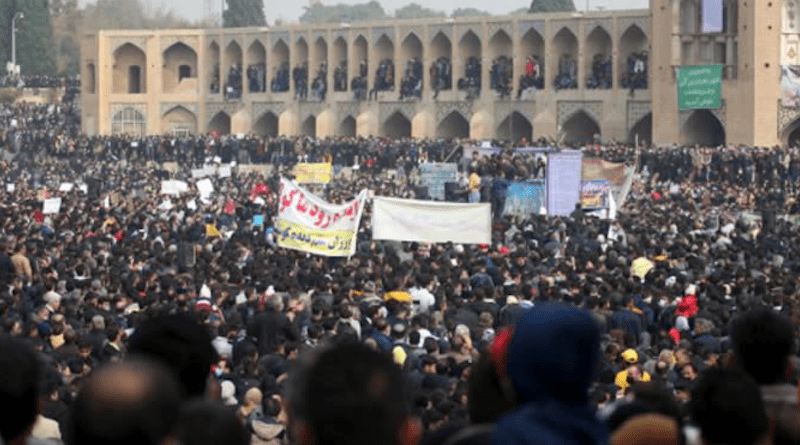Diplomacy Not Enough When Dealing With Iran – OpEd
By Arab News
By Dr. Majid Rafizadeh*
The prevailing approach of the Biden administration toward the Iranian regime, which appears to be solely anchored in diplomacy, is doomed to fail.
The White House believes that the Trump administration’s maximum pressure policy on Iran was ineffective. As a result, President Joe Biden has completely reversed course and used diplomacy in an attempt to contain the regime and confront its threats. But the problem is that his administration has fully relied on diplomacy without any application of force.
As part of its diplomatic initiative, the White House hinted to the Iranian leaders that, not only is it willing to lift nuclear-related sanctions, but also that it is considering lifting other sanctions too.
Biden has also made concessions toward Iran’s proxy militia group, the Houthis. Even as the evidence — including a report by the UN — showed that the Iranian regime was delivering sophisticated weapons to the Houthis in Yemen, the Biden administration last January suspended some of the terrorism sanctions Donald Trump had imposed on the group. Soon after, the Biden administration also revoked the Houthis’ designation as a terrorist group.
Then, last June, the US lifted sanctions on three former Iranian officials and several energy companies. And, in a blow to the Iranian people and advocates of democracy and human rights, a few days after the regime had handpicked an alleged mass murderer to be its next president, the Biden administration refused to rule out lifting sanctions against Iran’s Supreme Leader Ali Khamenei.
Not only has the Biden administration’s diplomatic route included lifting some of the sanctions on the Iranian regime and the Houthis, but it has also looked the other way on Tehran’s malign and destructive behavior in the region. For example, the White House has not taken proportionate action against the theocratic establishment after the US Department of Justice last month announced it had seized two large caches of Iranian weapons. The weapons included “171 guided anti-tank missiles, eight surface-to-air missiles, land attack cruise missile components, anti-ship cruise missile components, thermal weapon optics and other components for missiles and unmanned aerial vehicles.”
The Biden administration also remained silent after the US Navy seized Iranian petroleum products from “four foreign-flagged tankers in or around the Arabian Sea while en route to Venezuela. These actions represent the government’s largest-ever forfeitures of fuel and weapons shipments from Iran,” according to the Justice Department.
Furthermore, the US is not taking any firm action against Iran’s violations of US sanctions and UN Security Council resolutions. For example, Iran’s shipments of oil to Syria and Hezbollah are in violation of US sanctions. And transfers of weapons to the Houthis violate UNSC Resolution 2140.
The Biden administration is also looking the other way when the Iranian regime cracks down on protesters. Huge numbers of people in the province of Isfahan rose up against the ruling mullahs in November. Tens of thousands of farmers and other demonstrators poured into the streets and criticized government officials over a severe water shortage. As the regime cut off internet access, security forces fired shotguns and tear gas at the protesters, resulting in deaths and hundreds of injuries. With “#BloodyFriday” trending on Twitter, Mohammed-Reza Mir-Heidari, Isfahan’s chief of police, threatened to “deal” with the protesters.
The Iranian-Americans for Liberty organization pleaded with the Biden administration to show solidarity with the protesters, stating: “We call on President Joe Biden, Secretary Antony Blinken, and all members of Congress to stand with the Iranian people. Diplomacy with the world’s leading sponsor of terrorism is never going to produce a favorable result that benefits the American people or the Iranian people. Diplomacy with the Islamic Republic was destined to fail from day one.”
So what has been the result of the Biden administration’s diplomatic initiative with the Iranian regime, which has included giving concessions and looking the other way when it comes to Tehran’s violations of sanctions and destructive behavior? The regime keeps adding to its demands and has become more emboldened in advancing its revolutionary ideals.
In conclusion, the Iranian regime’s behavior over the last year should be proof for Biden that diplomacy without the application of force will not work with Tehran.
- Dr. Majid Rafizadeh is a Harvard-educated Iranian-American political scientist. Twitter: @Dr_Rafizadeh

